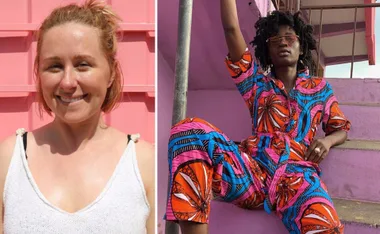One of the first things I noticed after the death of Isaac was the silence.
The past two years had been filled with laughter, music and the occasional tantrum. Then all of a sudden, it was just so quiet…
Isaac was the youngest victim of the Beirut blast. He was an outgoing, confident, brave, incredibly intelligent and affectionate little boy. He was thriving in Beirut. He loved to talk to people and as we walked around the city he would wave at the locals, many of whom would stop and have a chat with him.
He constantly astounded my husband and I with his fierce intelligence. He was a master at puzzles and was quickly picking up Arabic and French, despite the fact that my husband and I are fluent in neither. At two years old, he could already count to 20 in French, a feat that astounded his teachers at his beloved day care.
He loved cats, lizards and butterflies, which he called butter-lowers, and we spent many happy hours at a garden near our apartment searching for all three. But above all, Isaac was loving and affectionate.
I feel a physical pain at the thought that I will never receive one of his hugs again.
Isaac was sitting in his highchair having dinner at home, in the place where he should have been the most safe, singing along to his favourite nursery rhymes, when the explosion hit.
I was thrown to the ground, but Isaac in his highchair was like a sitting target. A large piece of glass pierced his tiny chest. Not knowing what had happened, my husband and I raced to get help, but the closest hospital, St George, had been destroyed in the blast.
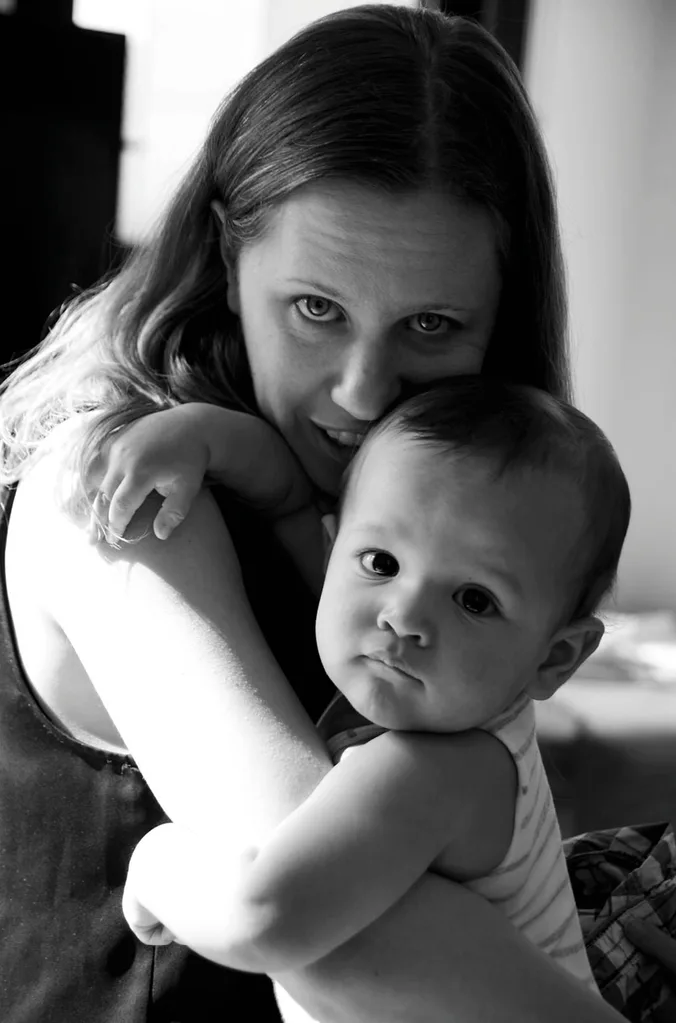
Sarah and her beloved son Isaac.
(Supplied)A good samaritan, who I flagged down on the street, raced us to Rafik Hariri Hospital, where Isaac died shortly afterwards. I was almost seven months pregnant at the time, and we were three weeks away from leaving Lebanon to return to Australia to have the baby. Instead of taking Isaac home to see his grandparents and cousins, and to meet his new baby brother, we had to accompany his casket back to Australia.
When I was told that Isaac had died, I screamed and screamed, a blood-curdling scream. I clearly remember a voice saying over and over again: “Sarah, you have to be strong for the baby.”
I am not sure who it was – the hospital room was jam-packed full of people – I don’t know why there were so many people. I just know it wasn’t my husband who spoke – he would never deny me my reaction to the worst possible news. But, whoever it was, seeped into my consciousness. The words caused me to panic – what if my grief over Isaac kills my baby? So, I composed myself and I feel like I have been doing so ever since.
In those early days, weeks and months, I cried many times but the tears remained surface deep. That voice remained in my head: “Sarah, you have to be strong for the baby” and I held myself back, composed myself before I was ready.
On the very few occasions I let myself really experience the pain, I would become hysterical and start hyperventilating. It terrified me, and I vowed that I wouldn’t let myself get to that state again. I couldn’t afford to lose my baby on top of everything else.
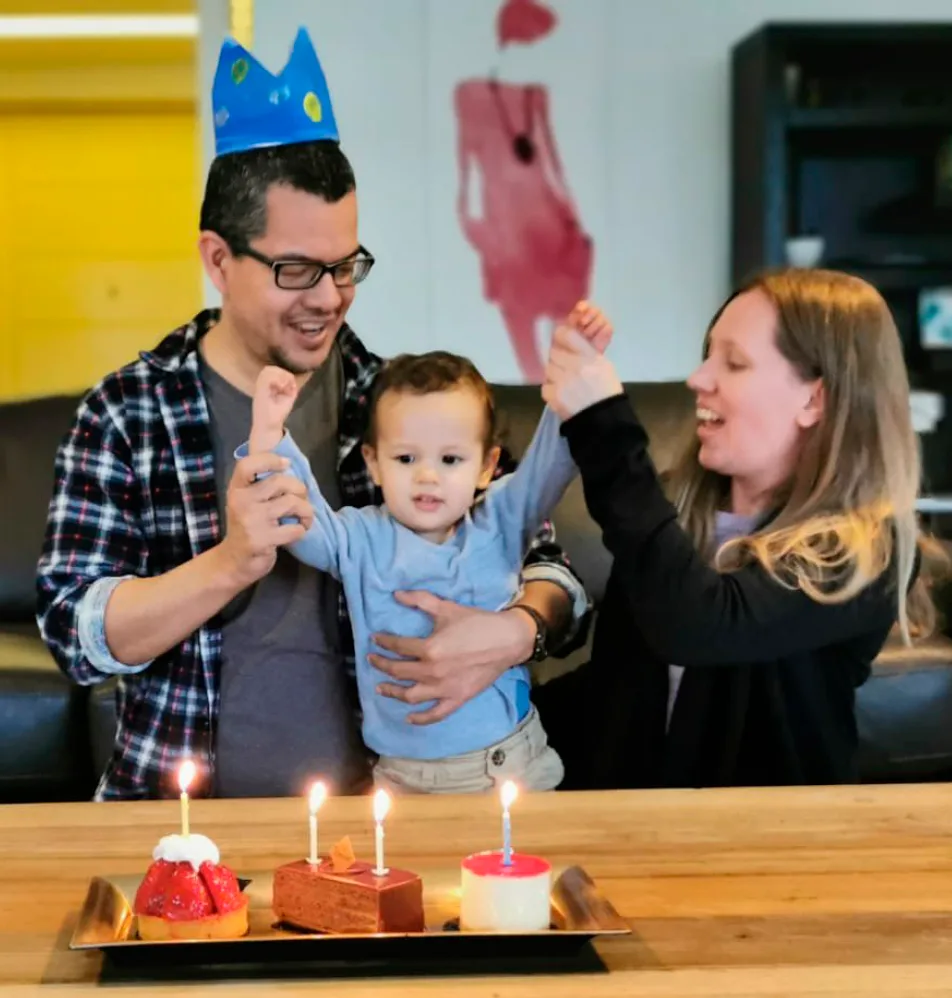
I clearly remember a voice saying over and over again: “Sarah, you have to be strong for the baby.” Sarah with her husband and Isaac.
(Supplied)I can recall the moment when the scale of what we had lived through, and lost, in the Beirut explosion really started to dawn on me. It wasn’t a moment I would have expected and it was the smallest thing. It was about 10 days after the explosion, and we were on our way back home to Australia.
At Dubai airport, as we made our way to the gate, I caught a glimpse of myself in a mirror and was shocked by what I saw. I didn’t recognise the reflection looking back at me.
It wasn’t just my physical appearance, as startling as it was to see myself heavily pregnant, being pushed in a wheelchair, wearing old track pants donated by a colleague, half my face black and blue, the signs of where the glasshad embedded itself in my face still evident. No, it was the pain etched on my face.
I saw in the mirror a grieving mother and it took me a while to realise that the grieving mother was me.
Before Isaac died, I had never really experienced grief. Sure, I had encountered death. The death of my grandparents hit me particularly hard. My grandfather, Opa, died suddenly at the breakfast table; my Oma a few years later in her sleep. I mourned their deaths and I still miss them all the time. But mourning is different from grief. I knew my Oma and Opa had lived long lives, good lives. I knew in particular that my Oma was ready to go. She wanted nothing more than to join my Opa. I was sad for my own loss, but not for hers. We are all familiar with the five stages of grief – denial, anger, bargaining, depression and acceptance – with the death of my grandparents it was easy to move quickly to the position of acceptance.
The death of Isaac, however, is a completely different beast. I am deep in grief and it is nothing like I would have expected. Sometimes it is suffocating and all-consuming and sometimes it is something different.
While it is largely accepted now that the stages of grief are not linear, the model proposed by Elisabeth Kübler-Ross in 1969 has seeped into popular culture to the extent that it can feel shocking when grief does not follow that path. This is a product of our unwillingness to talk – really talk – about grief.
It is easier to expect people’s feelings to fall into neat categories that they move through one at a time, only to come out the other end “all better”. David Kessler, who collaborated with Kübler-Ross, says that the global north is “grief illiterate” and that we “live in a time when we’re told we should feel like this for this long, and then you’re done.”
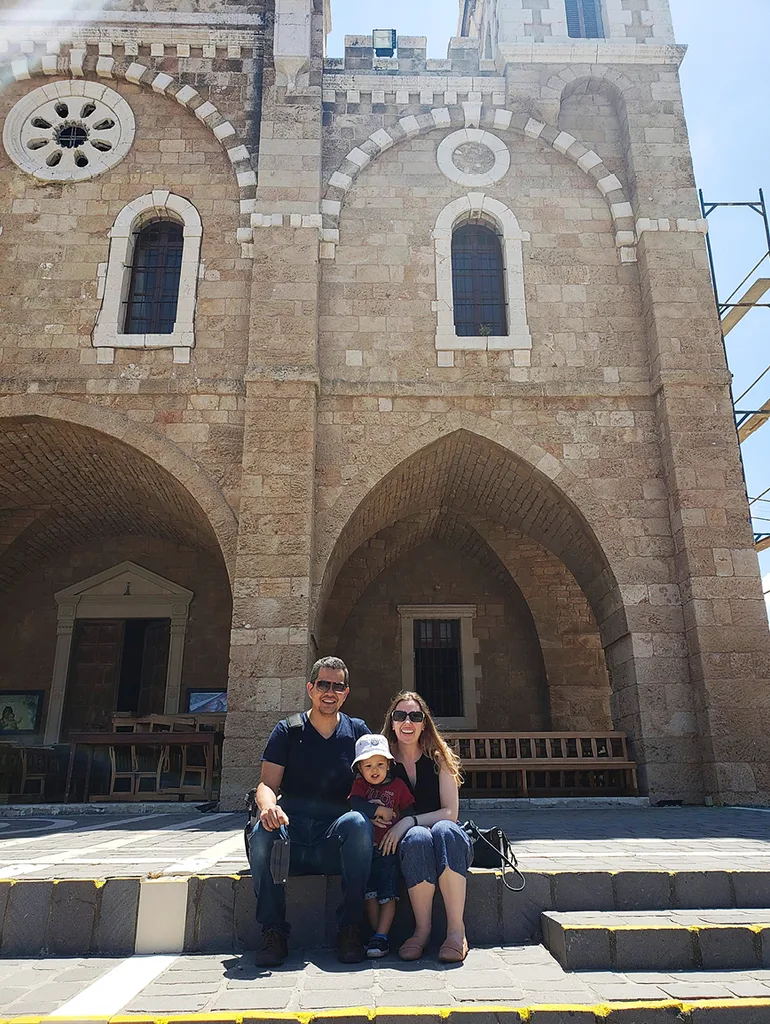
Sarah and her family were three weeks away from leaving to return to Australia when the blast hit.
(Supplied)So what has grief been like for me so far?
Complicated. Confusing. Painful. Scary. Exhausting. Lonely.
I still feel very much in denial. Although, I am not sure if denial is the right word because I know that Isaac is dead. Sure, I have had times where I have woken up in the morning and I have gone looking for him. Or I have heard my husband come through the front door and I half expect Isaac to come running behind him shouting, “Mummy, Mummy.” But for the most part, I know he is gone.
I just can’t believe it.
You could say I am deep in disbelief. I can’t believe I am never going to see Isaac again. I can’t believe how he died. I don’t understand how so many people survived but not him. I don’t understand why we were assigned this terrible fate. There is so much I just can’t wrap my head around.
For Craig and I, the sun rose and set with Isaac. Our days had been centred around his needs, filled with meal times, activities, stories and cuddles. Even after he was in bed, I would be cooking his meals for the next day or preparing his bag for day care. There was never a down moment, never time to rest.
In the early months after his death, I continued to wake very early in the morning, unable to get out of the habit. One morning, after a particularly fitful sleep, it hit me that I didn’t have to get up at 6am, I could sleep in if I wanted to. That realisation, rather than being a relief in my exhausted state, caused me to break down. I didn’t want to be catching up on much needed sleep, I wanted to be up at the break of dawn, singing along to Baby Shark or playing hide-and-seek. But now, there was nothing but time.
Two and a half months after Isaac’s death, I gave birth to his little brother Ethan. Once again, my days are full, revolving around feeds, nappy changes and tummy time. But it isn’t the same. I was preparing myself to be the mother of an energetic toddler and a newborn. Those newborn cries, as sweet and as welcome as they are, do not make up for the constant shouts of “Mummy, Mummy, Mummy!” While the newborn smiles and cuddles are the fuel that keeps me going, they do not replace the feeling I got when Isaac squealed with delight when he saw me and bounded towards me for a hug.
Life still seems quiet and slow.
Ethan does not replace Isaac, and nor should he, he is his own little person with his own needs.
My love for Ethan is independent of my love for Isaac. I never want Ethan to feel like my grief for Isaac means he is not enough, especially since he is literally what has saved me from falling into the abyss.
But I have also come to recognise that just because Isaac is no longer physically here with me, it does not remove my need to keep parenting him.
Being a mother is not something that can be instantly switched off. Isaac fundamentally changed my world – nothing before Isaac matters and nothing after him quite makes sense. It may not look like it, but I am still the mother of a two-year-old and a baby.
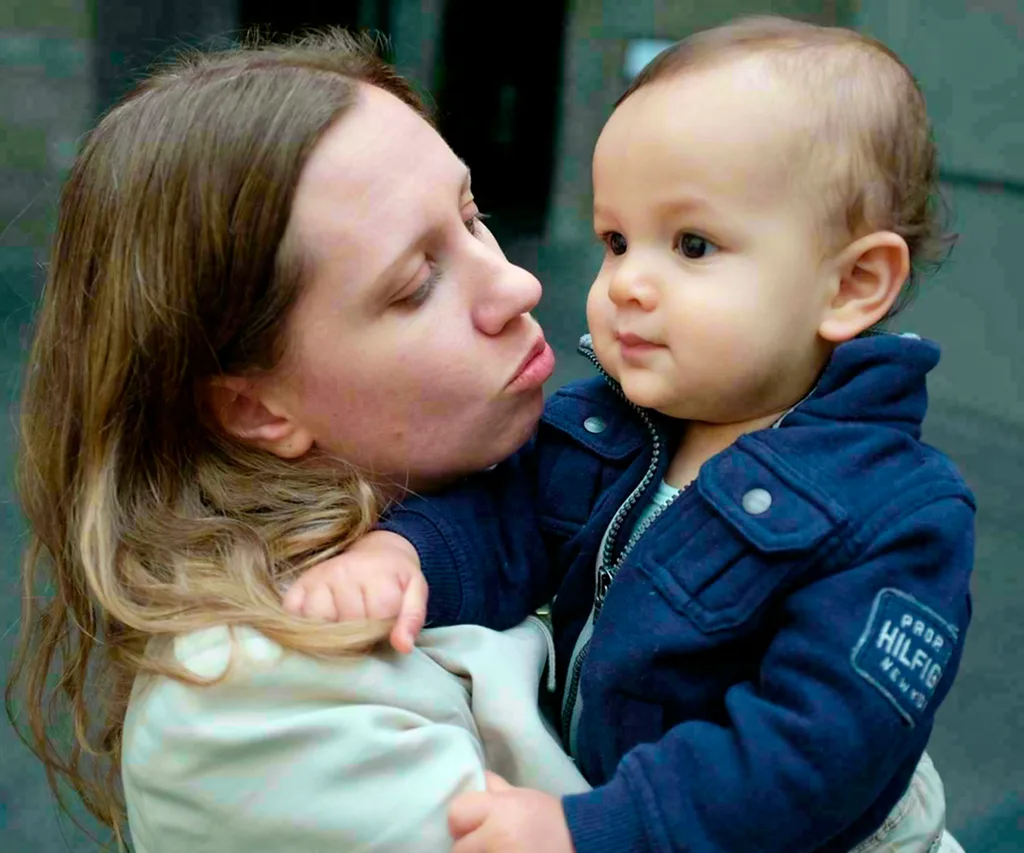
Sarah is fighting for justice for Isaac.
(Supplied)As the world is consumed by the COVID-19 pandemic, it has quickly forgotten the atrocity that happened on August 4, 2020. We cannot allow that to happen, nor can we allow the investigation to be bogged down in the murky domestic politics that characterises Lebanon.
So, I am joining other victims to continue to shine a light on what happened in Beirut and to call for an independent, impartial and transparent investigation.
I will not stop talking about what happened in Beirut. I will not stop reminding people of the innocent lives lost. And I will not stop contacting those with any sort of influence – diplomats, politicians, media, international human rights organisations – to implore them to keep up the pressure for an independent, impartial and transparent investigation.
This will be a marathon, not a sprint, but it is one I am willing to see out – for Isaac’s sake.
UNICEF has established a fund to support children in Lebanon who are suffering following the devastation of 2020. Click here to donate.
You can follow Sarah’s fight for justice via her blog or on Twitter @sas_yvonne
Red Nose Australia provides free grief counselling for bereaved parents and their families. Click here to make a donation.
You can read Sarah’s story and many others in the September issue of The Australian Women’s Weekly – on sale now.
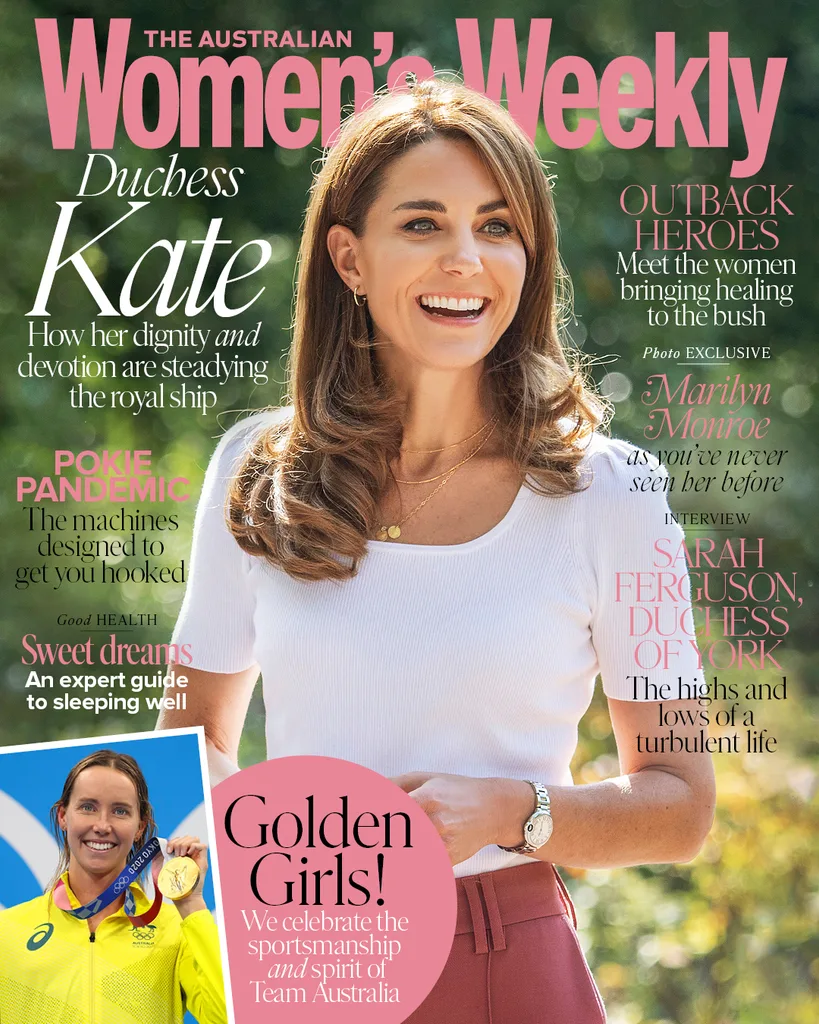
.jpg?fit=900%2C553)

